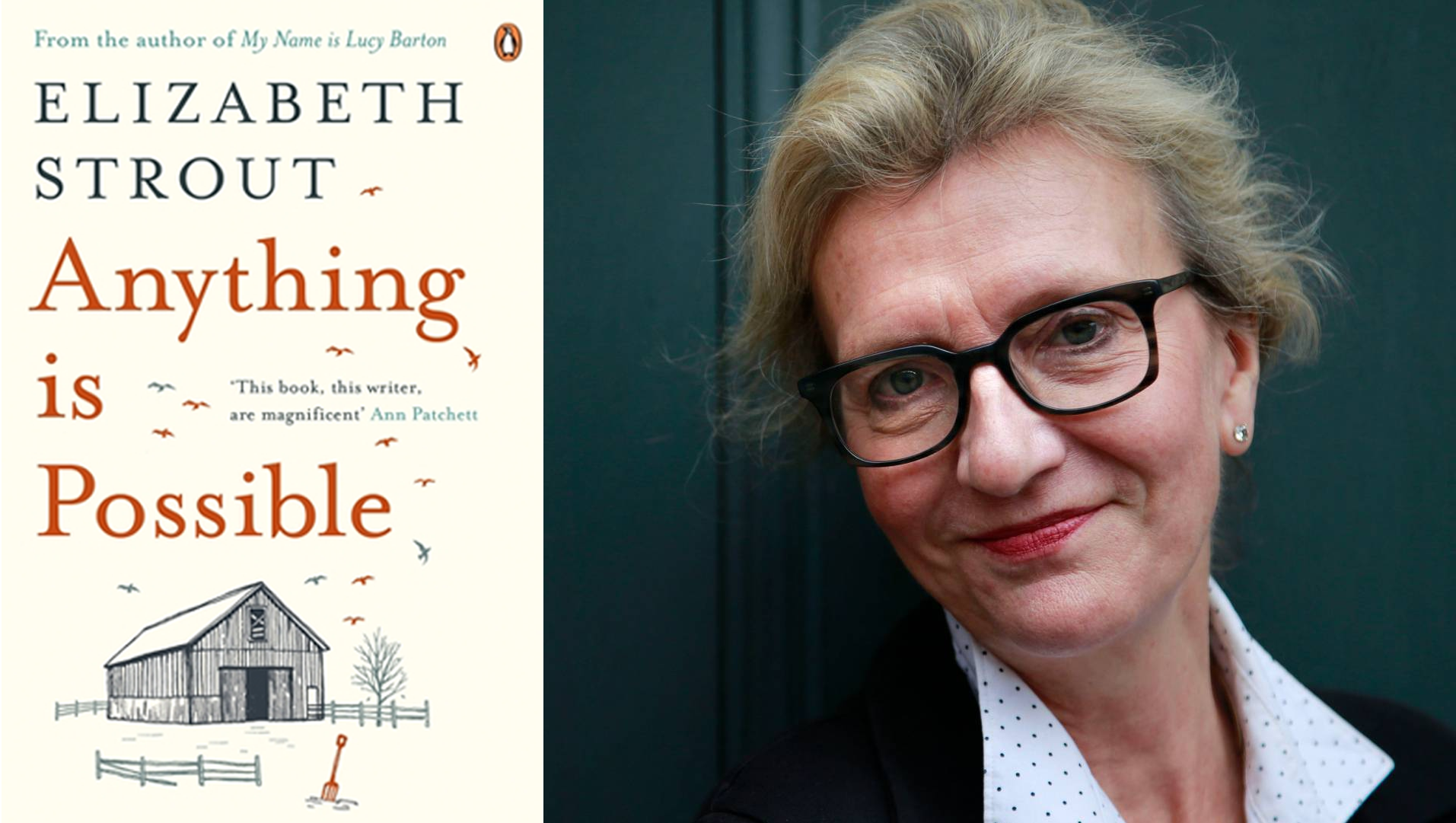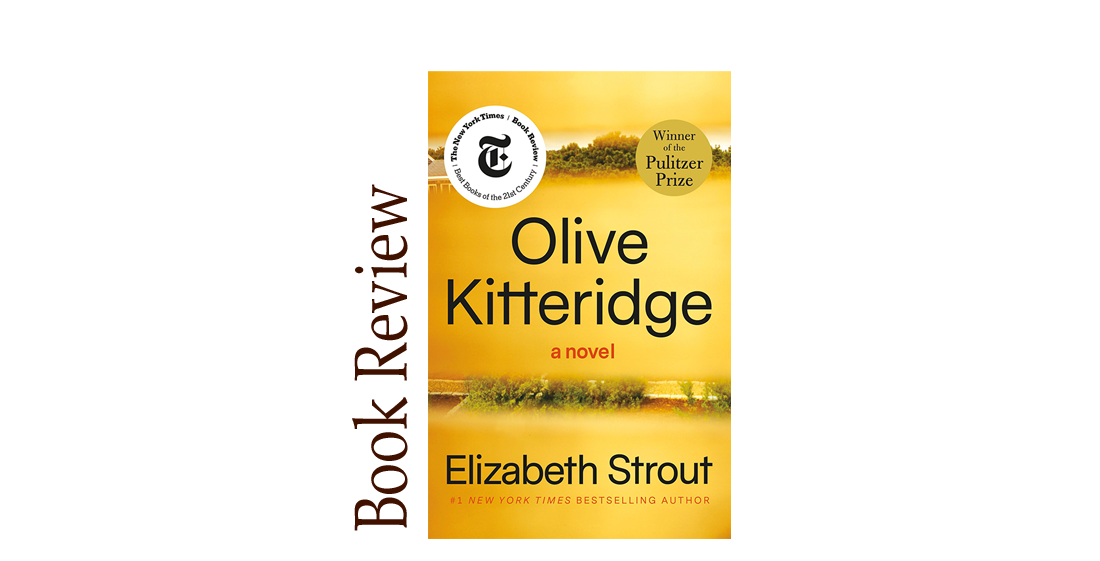- Date Published:
2008 - Length:
352 pages—Listening Time: 12 hrs 2 minutes - Genre:
Fiction - Setting:
Primarily set in the 1980s in Crosby, Maine - Awards:
Pulitzer Prize Winner Fiction 2009; National Book Critics Circle Award Finalist Fiction 2008; Bancarella 2010; San Francisco Chronicle Best Book of the Year Fiction 2008; Notable Books List Fiction 2009; 100 Essential New England Books; New York Times 100 Best Novels of the 21st Century; Oregonian Top Ten Book 2008; King County Library System Best Books Fiction 2008; Future Classics: 50 Literary Greats - Language:
English, translated into 18 other languages: Catalan, Chinese, Danish, Dutch, Estonian, Finnish, French, German, Greek, Indonesian, Italian, Latin, Polish, Spanish, Swedish, Turkish, Portuguese (Portugal) - Sensitive Aspects:
Bluntness, insensitivity, cruelty, mental illness, trauma, and depression - Movie:
This novel was adapted into a highly acclaimed four-part HBO miniseries in 2014. The series stars Frances McDormand as Olive Kitteridge, with Richard Jenkins as her husband, Henry, and Bill Murray in a supporting role as Jack Kennison. The series received widespread critical praise and won several awards, including eight Primetime Emmys. - Recommend for Book Club:
YES, for groups that enjoy real life fiction

As I began reading Olive Kitteridge by Elizabeth Strout, I was inclined NOT to like the main character, Olive Kitteridge. I would probably never invite Olive to join my book club. I wouldn't invite her to play cards with my bridge group unless we were really desperate for a fourth player. Really desperate. I would never have Olive over for dinner and would find an excuse if, on an extremely remote occasion, I was ever invited to her house. At the beginning of this book, I just didn't like the character of Olive Kitteridge.
But by the end, well, let's just say I couldn't get enough of her. I found myself craving new scenes where she was present. I anxiously awaited the next "Olive-ism" and found myself thinking, "Oh, Olive won't put up with this," as a new scene occurred. Gulp, I hate to admit it, but I saw a lot of myself in Olive Kitteridge. A LOT.
I guess it's why this wonderful book won a Pulitzer Prize. Elizabeth Strout is a literary genius.

Olive Kitteridge is composed of thirteen interlinked short stories set in the fictional coastal town of Crosby, Maine. The stories span several decades and revolve around Olive Kitteridge, a retired seventh-grade math teacher known for her blunt, prickly, and often unsentimental demeanor. Olive serves as the connecting thread throughout the book, sometimes as the central figure and other times appearing only peripherally in the lives of other townspeople.
Olive is sharp-tongued, deeply perceptive, and often judgmental. Her complex personality shapes her relationships with her family and community. Henry Kitteridge, a gentle, kind-hearted pharmacist, is Olive’s husband. Their only son, Christopher, eventually becomes a podiatrist and struggles with his relationship with his mother.
Each story introduces other residents of Crosy, whose lives intersect with Olive's in various ways, revealing the town's collective struggles and private heartbreaks.
The novel opens with “Pharmacy,” focusing on Henry Kitteridge’s relationship with a young assistant, Denise, and his quiet longing for connection. Other stories chronicle the lives of townspeople facing crises, such as a piano player battling alcoholism, a young woman confronting an eating disorder, and a man returning home contemplating suicide. Olive’s presence in these stories ranges from pivotal to fleeting, but her influence is always felt.

Olive’s own family life is fraught with tension. She shares a complicated bond with her son Christopher, whose marriages and eventual move away from Crosby strain their relationship. Olive’s marriage to Henry is tested by illness and emotional distance, culminating in Henry’s stroke and eventual death. Throughout, Olive’s inability to fully understand or express her emotions often leads to moments of regret, but also to rare flashes of insight and empathy.
The novel explores themes of loneliness, aging, love, loss, and the quiet heroism required to endure everyday life. Strout’s narrative style-unsentimental, honest, and deeply empathetic-illuminates the small but significant moments that define human experience. Olive’s journey is one of gradual self-awareness, as she comes to terms with her own flaws and the changing world around her.
Strout’s use of interconnected stories allows for a multifaceted view of Crosby and its inhabitants. The structure emphasizes how individual lives are woven together by shared history, community, and the presence of Olive herself. The book’s realism and emotional depth have been widely praised, and it was adapted into an acclaimed HBO miniseries.
Olive Kitteridge is a profound meditation on the complexities of ordinary life, rendered through the lens of a singular, unforgettable character. Through Olive and the people of Crosby, Strout offers a compassionate exploration of the human condition-its sorrows, joys, and enduring need for connection.

If you prefer a fast-paced or lighthearted read, Olive Kitteridge may not be for you. This is not a "fluff" book. But if you value nuanced storytelling and emotional realism, you've found a book you will love. You will never forget the character of Olive Kitteridge. In this book you will find
Deeply Realistic Characters and Emotions
Olive Kitteridge is celebrated for its unflinching portrayal of real, flawed people. Readers often feel as if they're observing real lives rather than reading fiction, as Strout depicts the characters, especially Olive herself, with absolute authenticity. Strout masterfully explores the inner thoughts and contradictions of her characters, making their experiences and emotions resonate on a personal level. Olive is not a traditionally likable protagonist-she’s blunt, often cranky, and sometimes even unkind-but her complexity and vulnerability gradually win readers over, not by transformation, but by understanding.
Insightful Exploration of Ordinary Life
The novel is structured as a series of interconnected short stories set in a small Maine town. This format allows Strout to explore the nuances of community, aging, marriage, and loneliness from multiple perspectives, revealing how individual lives intersect and influence one another. The book excels at capturing the mundane moments and quiet struggles that define everyday existence, prompting readers to reflect on their own personal experiences and relationships.
Honest Portrayal of Aging and Loss
Olive Kitteridge stands out for its honest, sometimes stark, depiction of aging, regret, and the passage of time. It doesn’t shy away from difficult topics such as loneliness, death, and the ways people squander or cherish their days. This frankness can be heavy, but it’s also what gives the novel its emotional power and depth.
Literary Quality and Recognition
The novel’s literary merit is widely acknowledged-it won the Pulitzer Prize for Fiction. Strout’s writing is praised for its clarity, subtle use of metaphor, and ability to move seamlessly between the internal and external worlds of her characters. The dialogue and setting are rendered with vividness and precision, making the world of Crosby, Maine, feel palpable and lived-in.
A Book That Invites Reflection
Readers often find themselves empathizing with characters they might initially dislike, and the book’s exploration of regret, love, and the smallness of daily life can be both sobering and enlightening. It’s a novel that lingers in the mind, encouraging introspection about the choices we make and the ways we connect-or fail to connect-with others.


Get Elizabeth Strout Books
Emotionally brilliant! You'll want to read every word this masterful writer has ever penned.
Bookshop.org was created as a socially conscious alternative to Amazon, with the goal of helping local, independent bookstores thrive. This is why Readers With Wrinkles supports their efforts. Please join us in this effort by purchasing your next read here.

If you enjoyed Olive Kitteridge by Elizabeth Strout and are seeking similar books, there are several novels and authors that capture the same spirit of nuanced character study, small-town life, and interconnected stories.
- A Visit from the Goon Squad by Jennifer Egan: Like Olive Kitteridge, this Pulitzer Prize-winning novel uses interconnected stories to explore the lives of a cast of characters over time, focusing on themes of aging, change, and redemption.
- Ellen in Pieces by Caroline Adderson: This Canadian novel features a complex, flawed protagonist and offers a deep dive into her emotional landscape, much like Olive. The book uses a structure of linked stories to explore Ellen’s life and relationships.
- Empire Falls by Richard Russo: Set in a small town, this novel delves into the lives of its residents with warmth, humor, and a keen eye for human frailty.
- Plainsong by Kent Haruf: Haruf’s trilogy, starting with Plainsong, is often recommended for fans of Strout. It’s a quiet, beautifully observed portrait of a rural community and its inhabitants.
- Home by Marilynne Robinson: This novel, set in a small town, explores family, forgiveness, and the passage of time with subtlety and grace.
- Anne Tyler: Her novels, such as A Spool of Blue Thread, frequently focus on family dynamics and ordinary lives in American settings, with a gentle but incisive touch.
- Ann Patchett: Books like Commonwealth and Bel Canto are praised for their character-driven narratives and exploration of relationships.
- The Painted Drum by Louise Erdrich: This book is a series of interconnected stories with a focus on small-town life.
- Lark and Termite by Jayne Anne Phillips: A story of family, memory and interconnected lives.


Comments